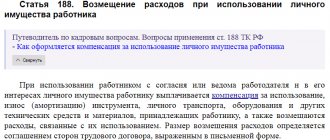1. Receipt by an official, a foreign official or an official of a public international organization personally or through an intermediary of a bribe in the form of money, securities, other property or in the form of illegal provision of services of a property nature, the provision of other property rights for committing actions (inaction) in for the benefit of the bribe-giver or the persons represented by him, if such actions (inaction) are included in the official powers of the official or if, by virtue of his official position, he can contribute to such actions (inaction), as well as for general patronage or connivance in the service - is punishable by a fine of up to one million rubles, or in the amount of wages or other income of the convicted person for a period of up to two years, or in the amount of ten to fifty times the amount of the bribe with deprivation of the right to hold certain positions or engage in certain activities for a period of up to three years, or correctional labor for a period of one up to two years with deprivation of the right to hold certain positions or engage in certain activities for up to three years, or forced labor for up to five years with deprivation of the right to hold certain positions or engage in certain activities for up to three years, or imprisonment for up to three years. three years with or without a fine of ten to twenty times the amount of the bribe.
2. Receiving a bribe in a significant amount by an official, a foreign official or an official of a public international organization is punishable by a fine in the amount of thirty to sixty times the amount of the bribe with deprivation of the right to hold certain positions or engage in certain activities for up to three years or imprisonment for a term up to six years with a fine of thirty times the amount of the bribe.
3. Receiving a bribe by an official, a foreign official or an official of a public international organization for illegal actions (inaction) - is punishable by a fine in the amount of forty to seventy times the amount of the bribe with deprivation of the right to hold certain positions or engage in certain activities for a term of up to three years or deprivation freedom for a term of three to seven years with a fine of forty times the amount of the bribe.
4. The acts provided for in parts one to three of this article, committed by a person holding a public office of the Russian Federation or a public office of a constituent entity of the Russian Federation, as well as the head of a local government body, are punishable by a fine in the amount of sixty to eighty times the amount of the bribe with deprivation of the right to occupy certain positions. positions or engage in certain activities for a term of up to three years, or imprisonment for a term of five to ten years with a fine of fifty times the amount of the bribe.
5. Acts provided for in parts one, three, four of this article, if they are committed: a) by a group of persons by prior conspiracy or by an organized group; b) with extortion of a bribe; c) on a large scale - is punishable by a fine in the amount of seventy to ninety times the amount of the bribe or imprisonment for a term of seven to twelve years with deprivation of the right to hold certain positions or engage in certain activities for up to three years and with a fine in the amount of sixty times the amount of the bribe .
6. Acts provided for in parts one, three, four and paragraphs “a” and “b” of part five of this article, committed on an especially large scale, are punishable by a fine in the amount of eighty to one hundred times the amount of the bribe with deprivation of the right to hold certain positions or engage in certain activities for a term of up to three years or imprisonment for a term of eight to fifteen years with a fine of seventy times the amount of the bribe.
Notes. 1. In this article, Articles 291 and 291.1 of this Code, a significant amount of a bribe is recognized as an amount of money, the cost of securities, other property, services of a property nature, other property rights exceeding twenty-five thousand rubles, a large amount of a bribe - exceeding one hundred fifty thousand rubles, especially large bribes - exceeding one million rubles.
2. In this article, articles 291 and 291.1 of this Code, a foreign official means any appointed or elected person holding any position in the legislative, executive, administrative or judicial body of a foreign state, and any person performing any public function for a foreign state, including for a public agency or public enterprise; An official of a public international organization means an international civil servant or any person who is authorized by such an organization to act on its behalf.
Terminology
In our country, a bribe means money or any materially valuable thing, transferred as a bribe in order to obtain any benefits or privileges. Often, a bribe is used to bribe someone to bypass the general legal procedures existing in the state: to simplify or speed up some process. And sometimes even conduct it formally. For example, only to create the appearance of conducting a tax or other supervisory audit.
Attention! As a result of such illegal acts, serious damage is caused not only to the economy, social and many other spheres of society, but also to law enforcement and human rights practice. Since the recipients of bribes are often also law enforcement officials, including employees of the judicial system.
What can be considered a bribe?
A bribe can be either money itself or any material assets, property, as well as rights to it, property benefits and services that can be assessed.
Statistics on bribery in Russia for 2014
Criminal legal definition of bribe
According to the note to Article 290 of the Criminal Code, a bribe means:
- money;
- stocks, bonds, etc.;
- any property;
- property services;
- property rights.
If all this is transferred to a person vested with authority in order to obtain any concessions from him or change his decision in his favor or in favor of third parties.
Article 290 of the Criminal Code of the Russian Federation “Taking a bribe”
What amounts are considered a bribe?
In order to answer the question, starting from what amount a gift will be considered a bribe, you need to first decide on several basic points.
Firstly, if we are talking about a bribe with an appropriate preliminary agreement, then the actual size of such a bribe (its cost) previously did not play any role at all. However, since 2021, the concept of petty bribery has been introduced, within the framework of which a special entity receives a bribe in the amount of no more than 10,000 rubles. This means that an ordinary bribe is something that exceeds 10,000 rubles.
Bribe statistics
Secondly, if we are talking about a bribe of gratitude, which can, under certain circumstances, be considered as a gift, then the acceptable value of the latter at present is 3,000 rubles. This is the amount that state and municipal employees are allowed to receive regular gifts. But if the gift is still regarded as a bribe, then we will be talking about petty bribery - Art. 291.2 of the Criminal Code until its cost exceeds the mark of 10,000 rubles.
In the rest of the part, even from the point of view of the Civil Code of the Russian Federation (namely, Article 575), donation is unacceptable in relation to:
- municipal and civil servants;
- employees of educational institutions;
- health workers;
- employees of organizations providing social services.
An exception is protocol awards and incentive gifts in accordance with intradepartmental and intra-organizational regulations.
Article 291.2 of the Criminal Code of the Russian Federation “Petty bribery”
Article 575 of the Civil Code of the Russian Federation “Prohibition of donation”
Who can you give a bribe to?
The subjects of such a criminal act can only be those listed in Art. 290 persons, namely: special subjects. These, in particular, are:
- all Russian officials;
- foreign officials;
- officials of a public international organization.
At the same time, Russian officials are understood to be persons who permanently, temporarily or by special authority exercise the functions of a government representative or perform organizational, administrative, administrative and economic functions in government agencies, local governments, municipal and state institutions, state corporations, state companies, unitary municipal and state enterprises, joint stock companies in which a controlling stake belongs to the Russian Federation, constituent entities of the Russian Federation or municipalities, as well as in the Armed Forces of the Russian Federation, other troops and military formations of the Russian Federation.
Also, individual subjects here are persons holding public office - the Russian Federation, a subject of the Russian Federation, heads of local government bodies.
Persons holding government positions in the Russian Federation mean persons holding positions established by the Constitution of the Russian Federation, federal constitutional laws and federal laws for the direct execution of the powers of government agencies.
Persons holding government positions at the regional level are understood as persons holding positions established by regional constitutions or charters for the direct execution of the powers of government agencies.
Foreign official means any appointed or elected person holding any position in the legislative, executive, administrative or judicial body of a foreign country, and any person performing any public function for a foreign country, including for a public department or a public enterprise (for example, minister, mayor, judge, prosecutor).
Officials of a public international organization include, among others: members of parliamentary meetings of international organizations in which the Russian Federation is a participant, persons holding judicial positions in any international court whose jurisdiction is recognized by the Russian Federation.
Bribe as a crime
A bribe in the Russian Federation (both its transfer and receipt) is theoretically a criminal offense. However, in practice, many such offenses often fall outside the scope of the law. Because it is not beneficial for the bribe giver, much less the bribe taker, to tell anyone about their illegal relationships.
Explicit and implicit bribes
An obvious bribe is a bribe with a preliminary agreement.
When the parties to the transfer and receipt of a bribe stipulate in advance: what, when and for what purposes is being transferred and what each party will ultimately receive from it. In most cases, a non-obvious bribe is a bribe of gratitude. When the bribe recipient is thanked for some perfect gesture after he has completed something. In this case, there may be no advance agreement at all.
Important! At the same time, despite the fact that in the latter case gratitude is often regarded as a gift, if we are talking about a “present” that was presented not as a person, but as an official and directly in relation to his actions (actions, inactions, decisions) directly related to the official position of this citizen, then this is precisely a bribe. And not a gift, as many people think. And here everything will depend on the competent qualification of what the law enforcement agencies did.
Classification of bribes according to their size
So, as we mentioned earlier, an acceptable ordinary gift for officials should not exceed 3,000 rubles in value. In the Russian Federation, receiving a bribe in the amount of up to 10,000 rubles is considered petty bribery. inclusive. Anything more will be ordinary bribery.
A significant amount of the bribe, which already amounts to Part 2 of Art. 290 of the Criminal Code, this is the value of the transferred property or the amount of funds exceeding 25,000 rubles. Even if 25,001 rubles are transferred, this will already be considered a significant amount.
The next category is the large size of the bribe, that is, the cost of property, the amount of money in the amount of more than 150,000 rubles. Next comes a particularly large amount: a bribe exceeding 1 million rubles.
What actions can be considered committed for a bribe?
In addition to the circle of persons who are regarded as bribe takers, the law also describes the range of acts considered incidental to the receipt of a bribe.
Firstly, you can receive a bribe not only on your own, but with the help of intermediaries.
Secondly, you can receive a bribe not only for yourself directly, but also for the purpose of transferring it to a third party, including a legal entity and an individual.
Thirdly, a bribe can be transferred for:
- committing actions (inaction) in favor of the bribe-giver or persons represented by him, if these actions (inaction) are within the official powers of the official or if, by virtue of his official position, he can contribute to such actions (inaction);
- for general patronage or connivance in the service;
- for illegal actions (inaction).
Responsibility for accepting a bribe
Legal liability for accepting a bribe depends on the severity of the illegal act committed. The latter is directly dependent on the qualification of the crime.
Responsibility under the law
Article 290 of the Criminal Code contains several elements of a crime, each of which entails its own measure of liability.
Thus, for a simple crime (part 1) liability is provided in the form of:
- a fine of up to 1 million rubles, or in the amount of the criminal’s salary, income for a period of up to 2 years, or in the amount of 10-50 times the amount of the bribe with deprivation of the right to hold certain positions or engage in certain activities for up to 3 years;
- correctional labor for 1-2 years with deprivation of the right to hold certain positions or engage in certain activities for up to 3 years;
- forced labor for up to 5 years with deprivation of the right to hold certain positions or engage in certain activities for up to 3 years;
- imprisonment for up to 3 years with or without a fine of 10-20 times the amount of the bribe.
For qualified personnel (Part 2), similar penalties are provided, but to a more impressive extent:
- a fine of 200,000-1,500,000 rubles, or in the amount of the salary, the income of the criminal for a period of 0.1-2 years, or in the amount of 30-60 times the amount of the bribe with deprivation of the right to hold certain positions or engage in certain activities for up to 3 years;
- imprisonment for up to 6 years with or without a fine of up to 30 times the amount of the bribe and with deprivation of the right to hold certain positions or engage in certain activities for up to 3 years.
A separate element is the commission by a special subject of an unlawful act for a bribe - part 3. This is punished even more severely. Namely:
- a fine of 500,000-2,000,000 rubles, or in the amount of the salary, the income of the criminal for 0.1-2 years, or in the amount of 40-70 times the amount of the bribe with deprivation of the right to hold certain positions or engage in certain activities for up to 5 years;
- imprisonment for 3-8 years with or without a fine of up to 40 times the amount of the bribe and with deprivation of the right to hold certain positions or engage in certain activities for up to 5 years.
If all of the above is committed by a person holding a government position at the federal or regional level, as well as being the head of a municipal entity (Part 4), then the punishment will be as follows:
- a fine of 1-3 million rubles, or in the amount of the salary, the income of the criminal for 1-3 years, or in the amount of 60-80 times the amount of the bribe with deprivation of the right to hold certain positions or engage in certain activities for up to 7 years;
- imprisonment for 5-10 years with or without a fine of up to 50 times the amount of the bribe and with or without deprivation of the right to hold certain positions or engage in certain activities for up to 7 years.
If the acts covered by parts 1, 3, 4 are committed by a group of persons by prior conspiracy or by an organized group, with extortion of a bribe on a large scale, then punishment will follow in the form of:
- a fine of 2-4 rubles, or in the amount of the salary, the income of the criminal for 2-4 years, or in the amount of 70-90 times the amount of the bribe with deprivation of the right to hold certain positions or engage in certain activities for up to 10 years;
- imprisonment for 7-12 years with or without a fine of up to 60 times the amount of the bribe and with or without deprivation of the right to hold certain positions or engage in certain activities for up to 10 years.
If the acts covered by parts 1, 3, 4, paragraphs. “a” and “b”, part 5, are committed on an especially large scale, then the offender will be punished as follows:
- a fine of 3-5 million rubles, or in the amount of the salary, the income of the criminal for 3-5 years, or in the amount of 80-100 times the amount of the bribe with deprivation of the right to hold certain positions or engage in certain activities for up to 15 years;
- or imprisonment for 8-15 years with or without a fine of up to 70 times the amount of the bribe and with or without deprivation of the right to hold certain positions or engage in certain activities for up to 15 years.
Position of the defense in court:
The defense position consisted of two main directions.
The first direction is that my principal is not subject to the provisions of Art. 290 of the Criminal Code of the Russian Federation, he could only be a fraudster, provided there was no provocation, but not a bribe-taker, this position is objectively confirmed by the collected evidence, which means in his actions we observe another less serious crime, provided for in Part 3 of Article 30 of Part 3 of Art. 159 of the Criminal Code of the Russian Federation - attempted fraud.
It’s a shame for the defense, which during the preliminary investigation did not pay attention to the essence of the civil law relations between construction organizations and did not trace the chain of rights and obligations under construction contracts.
Based on the analysis of data from civil law contracts, the State Unitary Enterprise and the construction company cannot in any way influence each other’s activities. These two organizations do not have any rights to each other and do not bear any obligations to each other.
The scope of authority is determined by the construction subcontract agreement concluded with, according to which, the acceptance of construction work is carried out by no one else, only.
Moreover, the construction subcontract agreement between these two organizations, by its legal nature, was a mixed agreement; this agreement contains rules governing the provision of services.
It provides paid services under a construction subcontract according to which it undertakes the preparation of initial permits and other construction documentation, and also undertakes the acceptance and delivery of construction work to the customer.
is obliged to pay 12% of the contract price for such a service. Documented confirmation, accepted work from, organized acceptance of construction work, services for acceptance of construction work were provided.
Question: What does my client in particular have to do with this? Answer: Nothing to do with it.
The principal did not have the authority to accept work from, he could accept, and therefore sign acts, with which there are contractual relations.
Additional grounds that my client is not a subject can be found in the appeal.
The second direction of defense is provocation.
All the materials of the ORM “operational experiment” and the criminal case were riddled with provocation, to the point of being ridiculous, in the ORM there is an intelligence report called “Explanation”, where the agent provocateur, who was also a witness, complained to FSB officers that he was offering two million rubles, but they don’t take money...
The power of attorney from the agent provocateur to represent him in law enforcement agencies was issued a week earlier than the alleged “intention” of my client to receive a bribe.
In addition, there was verbal evidence in the case: the testimony of three witnesses about the actions of the agent provocateur, confirmed in the transcripts of the negotiations, the agent’s request, no matter through whom, to attach the money. The agent had a conflict with one of the witnesses on this basis, because he did not like that the agent was dragging him into his dirty machinations.
The witness-provocateur in court presented at least three versions of what happened, openly lied and dodged, “nullified” what he said, got confused, “nullified” again. In the end, he was completely confused, he got the time and place of receiving the marked money mixed up, and it turned out that the money was all real, not candy wrappers, and he got the time of arrival at the construction site to meet with the intermediary mixed up, insisted that the construction work certificates for his company had not been signed, although it was documented, that all the documents were signed a long time ago.
More than a month before the implementation of the operational investigation, he allegedly recorded his provocative conversation on his mobile phone, which he gave to law enforcement officers, and they downloaded the recording of the conversations onto a CD, naturally the agent threw away the phone as unnecessary, and for some reason the CD is used as evidence in the case, which the agent gave to law enforcement officers.
Over time, the issuance of the CD was also confused; it was issued by the agent on April 19, 2021, and some of the documents included another date, April 14, 2021, so this incorrect date ended up in the verdict.
Later, in the PSZ, the testimony of the provocateur’s witness was “combed” into the form that he gave it during the preliminary investigation. No one announced the disclosure of evidence during the preliminary investigation: it was unprofitable for the defense, and the state prosecution was impressed by the unexpected turns of the witness.
The defense asked the witness agent at least a hundred questions alone. Not a single defense question to all the witnesses in the case was recorded in the PSZ.
What’s upsetting is that I filed a number of motions regarding the inadmissibility of evidence obtained in gross violations of the law; my fellow defense attorneys sided with the prosecution and asked that they be denied without explanation.
Moreover, I submitted these petitions in the interests of their own principals. Only on the second attempt did the court allow the testimony of the required witness to be read out. “Colleagues” unanimously refused to publish my client’s explanation (his explanations without a lawyer were more sane), citing the fact that this was not a procedural document. I don’t think they didn’t know the theory of asymmetry of evidence; they systematically passed the game.
It was necessary to make a roundabout maneuver during the interrogation of the client, asking him to tell about the content of his explanations, which he gave without a lawyer. On my part, this was an attempt to disavow the testimony of my client given during the preliminary investigation, in which he admitted his guilt.
The need was to compare the contents of the initial documents before the initiation of the criminal case and the documents in which the so-called defense attorney participated; if such a “drunken party” has already begun, and his confession is read out, then we study everything.
The case was heard at this pace for two months. The judge took a week to schedule the sentence. After its announcement, I took two weeks off.
The defendant is not to blame if the lawyer makes a mistake. The presiding judge de facto figured out such things that my client accepted the erroneous position of his defense attorney.
A very interesting phrase on page 43 of the verdict, how the court justified the absence of a violation of the right to defense: The court does not see a violation of xxxxx’s right to defense, since qualified assistance in the person of professional lawyers was provided at the appropriate stage of the criminal process.
I appreciate the judge’s subtle sense of humor; in other words, it is confirmed that during the preliminary investigation the court found a violation of the right to defense.
My numerous requests were denied because the court considered the violations of the criminal procedure law to be insignificant. But still, he admitted the violations. The gross violations of the Code of Criminal Procedure and the Law of the Russian Federation “On Operational Investigations” were corrected by the court, by testifying, summoned as a witness, and also as part-time savior of the prosecution, the lieutenant colonel of the FSB responsible for operational investigations.
The presiding officer completely dealt with the matter and understood everything. I really hoped for retraining, since I managed to “break the case down into cogs”, to present the situation in a cogent manner differently from what the prosecution presented, which crumpled up all the evidence.
The result of the case in the court of first instance is that my client did not admit his guilt: his qualifications remained the same - Part 5 of Art. 290 of the Criminal Code of the Russian Federation - the sentence is determined by the lower limit of the sanction - 7 years in a maximum security colony, without a fine.
Practical nuances
In practice, corruption crimes have a wide variety of variations. But they always pursue the same goal - the use of official powers to the detriment of the interests of the state/municipal service.
Other articles related to bribes
The following illegal acts provided for by the Criminal Code of the Russian Federation are also directly related to bribes:
- giving a bribe - Art. 291;
- mediation in bribery - Art. 291.1;
- petty bribery - art. 291.2.
Article 291 of the Criminal Code of the Russian Federation “Giving a bribe”
Article 291.1 of the Criminal Code of the Russian Federation “Mediation in bribery”
Judicial practice under Article 290 of the Criminal Code of the Russian Federation
Details about the methodology for applying the norms of Art. 290 of the Criminal Code of the Russian Federation in criminal proceedings is described in the Resolution of the Plenum of the Armed Forces of the Russian Federation N dated 07/09/2013 (as amended on 12/03/2013) “On judicial practice in cases of bribery and other corruption crimes.”
Resolution of the Plenum of the Supreme Court of the Russian Federation dated July 9, 2013 No. 24 “On judicial practice in cases of bribery and other corruption crimes”
How to distinguish a bribe from commercial bribery
It is very simple to distinguish a bribe from commercial bribery.
In the first case, we are talking only about state and municipal officials, as well as special entities that are in one way or another connected with state/municipal/public interests. In the second, exclusively commercial interests are jeopardized. That is, we are talking about bribed employees of commercial structures. Accordingly, the object of encroachment is commercial, not state interests.
What is the liability for complicity in receiving and giving a bribe?
Mediation in receiving/transferring a bribe is already part of a completely different crime, provided for, as stated above, in Art. 291.1 CC. There is a minimum punishment:
- a fine of up to 700,000 rubles, or in the amount of the salary, the income of the criminal for a period of up to 1 year, or in the amount of 20-40 times the amount of the bribe with or without deprivation of the right to hold certain positions or engage in certain activities for up to 3 years;
- imprisonment for up to 4 years with or without a fine of up to 20 times the amount of the bribe.
Appeal against a court verdict
When announcing the verdict, the judge practically encrypted the judicial investigation in which she participated.
When drafting the appeal, I had to work not as a defense attorney, but as a decipherer of the verdict.
I was painfully searching for a form for submitting arguments in an appeal. And I came to the following thoughts: if you describe all the violations, the complaint will become ponderous and unreadable.
At one time, a very long time ago, when in a very complex economic case, my opponent was the Great Lawyer Yuri Artemyevich Kostanov, he then still wrote a cassation appeal briefly (only six sheets), of course, without references to the Court of Justice, relying only on the case materials, passed the verdict in the Moscow City Court in one sitting.
I decided to draw up an appeal in the style of lawyer Yu.A. Kostanov. having examined only the evidence in the case and compared it in the verdict.
I composed it from two directions as follows:
About non-subject, violation of substantive law and about provocation. Moreover, the arguments about provocation stimulate the decision to reclassify to a less serious crime.




